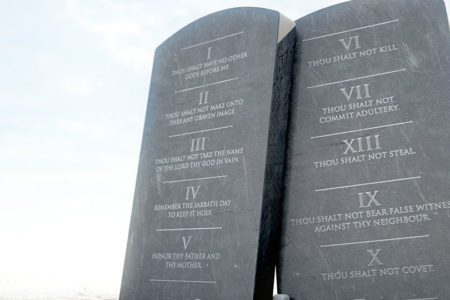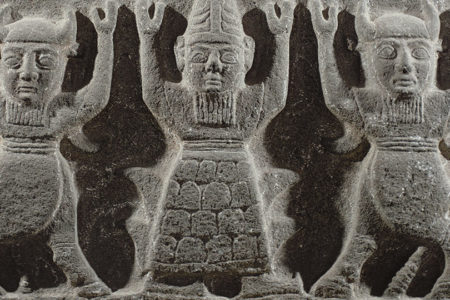Zvi Sep/Oct 2005
In Deuteronomy 31 it is written, “Be strong and of good courage, do not fear nor be afraid of them; for the Lᴏʀᴅ your God, He is the One who goes with you. He will not leave you nor forsake you” (v. 6).
Recently I was walking along the street in Jerusalem when an ultra-Orthodox man stopped me and said, “If I am not mistaken, you have been to our synagogue; and we had a long discussion at that time on a subject all of us are much against.”
So I asked him, “Who are you against?”
“You spoke about This Man, Jesus Christ,” he replied. “We had a long discussion, but we did not come to a conclusion. So, what do you think? do you think that one day you can return to our synagogue so we can continue to speak on this matter? Because it was a very interesting conversation.”
I replied, “do you really want me to come to your synagogue and continue the discussion?”
“Yes,” he said. “We will have an open conversation, and we will see where the truth lies.”
As we spoke, two of his friends arrived. They recognized me also. “So,” asked one, “what are you up to these days?”
“I do as I always do,” I told them. “I read the Bible and try the best I can to teach others, so they will know what the Lord expects from them.”
“Can you tell us what He expects from us?” one asked.
Of course, I was happy to oblige. “He has chosen us to be His servants and to bring His salvation to the ends of the earth. Look around you. What are you doing?”
They showed me the big books they were carrying, all containing rabbinical stories that they call the Word of the Lord. By this time more people had gathered around to listen. Then still more came until the street became crowded.
“Tell me,” I asked, “what is more important for the people of Israel? To worship God according to those many rabbinical traditions or according to this Book, the Holy Bible, written according to the Holy Spirit of God?”
Everyone on the street began to reply, “According to the Holy Bible, of course!”
Most of them were far from religious, and the ultra-Orthodox realized they had little power with which to confront me because the crowd was not on their side. So one said, “We have no time to talk here. We must go to the Yeshiva to study Talmud. But we would be happy if you would come with us.”
“I am ready now!” I told them. And I went to the Yeshiva (seminary) with them. When we arrived, other ultra-Orthodox men came up to us. Now I was alone, and they were many. But I did not fear them because I put my trust in the Lord, knowing that the Holy Spirit tells us what to say at the appropriate time.
“Now what do you have to say?” one asked, thinking I would be afraid.
So I began. “I am the same here as I was on the street,” I said. “I try to worship the Lord according to what is written in the Bible, not according to your many superstitions.”
The men were listening, and then their rabbi arrived. When he saw me, he began shouting at his pupils, “How can you listen to such a one! Let me speak to him!” Addressing me, he asked, “Do you believe in God?”
“Of course I believe in God, but according to what is written in the Bible. Not as you do. You should be a good example. But instead you teach these students falsehoods and lead them down a wrong path.” Then I read to them, from Deuteronomy 6, what is perhaps the most important passage to them in the Bible: “Hear, O Israel: The Lᴏʀᴅ our God, the Lᴏʀᴅ is one! You shall love the Lᴏʀᴅ your God with all your heart, with all your soul, and with all your strength” (vv. 4–5). The students were so happy when I read this. They knew what I told them was right and that their rabbi had lost his argument.
They realized that I do not teach the traditions of men, as he does. I teach from the Word of God. So I continued reading to them from Isaiah chapters 25, 35, and 53. Even though their rabbi was unhappy, the students listened. And when I was finished, they said, “We want you to come again.”
I pray that someday they all will come to know personally the One about whom it is written, “Behold, this is our God; We have waited for Him, and He will save us. This is the Lᴏʀᴅ; We have waited for Him; We will be glad and rejoice in His salvation” (Isa. 25:9).







